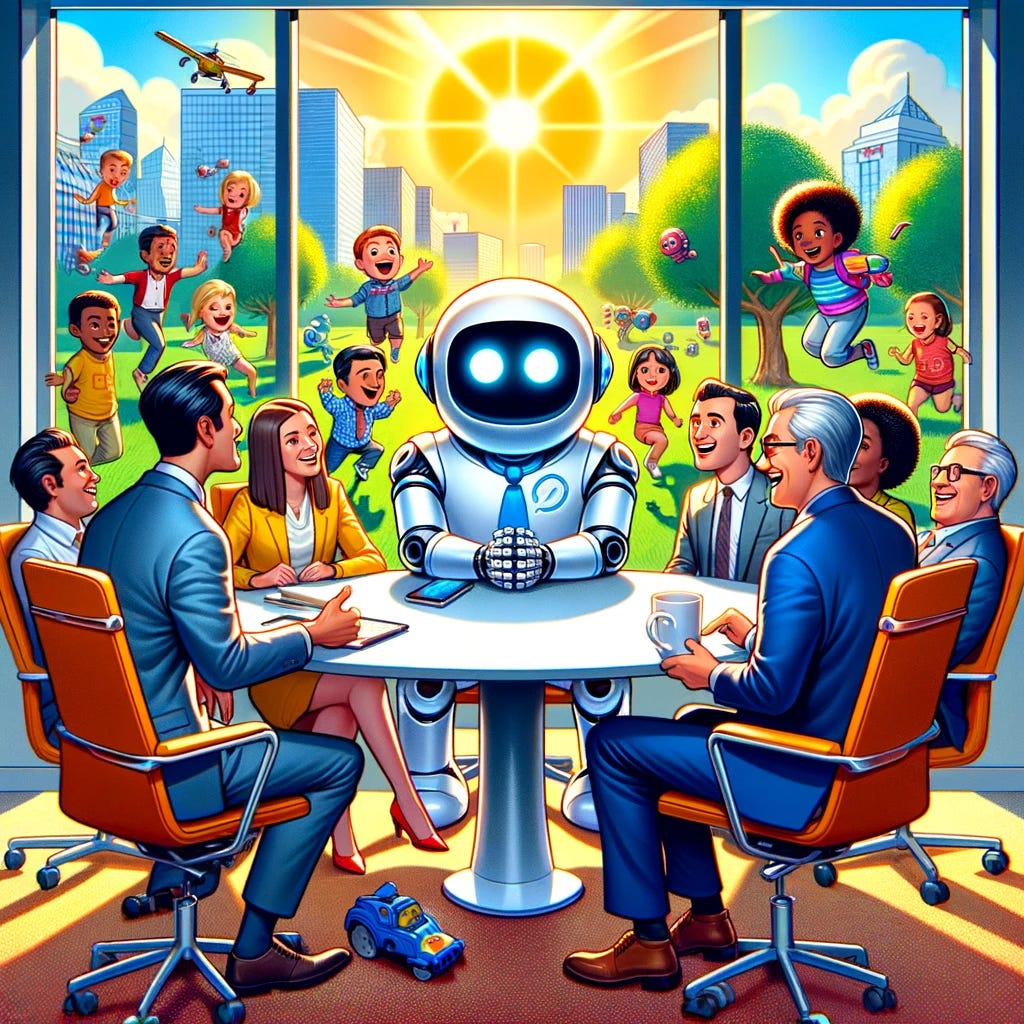What the OpenAI drama means for your kids: Nothing and possibly everything
What happened
Just before Thanksgiving, OpenAI (the maker of ChatGPT) fired its CEO, who’s been the face of the entire A.I. industry.
Then Microsoft, owner of 49 percent of OpenAI, offered to hire him.
Then 730 of the 770 employees at OpenAI threatened to quit if the board didn’t bring him back.
Then Microsoft offered them jobs, too.
Then OpenAI asked him to come back, and he did.
It was glued-to-the-screen drama for the Twitter-sphere for days.
Everyone was back on their own turf by Thanksgiving break, giving employees a chance to breathe and the rest of the world a chance to wonder, “What was that all about?”
Why it means nothing for your kids
The drama was fun while it lasted, but did anything really change? In many ways, for many reasons, not for now.
ChatGPT is just ChatGPT.
Yes, ChatGPT opened the world’s eyes to A.I., but it is not the end-all, be-all of A.I. Even if it shut down today, the age of A.I. wouldn’t be over. Not even close.
Interestingly, none one at OpenAI even thought ChatGPT was a big deal. They announced it to the world a year ago today and were stunned by its reception. It makes perfect sense — and is a bit poetic — that the scientists buried deep in A.I. research wouldn’t think anything of it, but to everyone else, it was eye-opening. Mind-boggling. Stunning.
A year later, the vast majority of people and businesses are still trying to wrap their heads around what it is and what to do with it.
A week before his now-infamous firing, OpenAI CEO Sam Altman led an all-day hype session for the company. He ended it with this, “What we launch today is going to look very quaint relative to what we're busy creating for you now."
It’s been said he and his company are releasing things much more slowly than they’re creating them to give the rest of us a chance to adapt.
If this is the case, a weekend-long firing and re-hiring isn’t going to put the cat back in the bag.
Open Source
Any one of those 730 employees who were ready to jump ship to follow their captain could let the world know what’s been going on below deck.
But when it comes to the ChatGPT product specifically, they wouldn’t even need to.
Google, Amazon, Meta, and others have already developed their own Large Language Models (LLMs) just like ChatGPT. And the LLM that Meta (parent company to Facebook and Instagram) created is “open source,” meaning everyone in the world has access to the source code to make their own how-ever and when-ever they like.
The point is that ChatGPT may be the most famous for now, but if the human resources mess had caused any real damage, a whole slew of LLMs would be waiting in the wings.
They already are.
Why it could mean everything
The thing about AI right now is the actual breakthrough is being drowned out by hype relating to marketing tasks.
The big deal isn’t generating sentences and content with a tool. It’s that we can interact with computers using our language.
Being excited about producing blog posts and social posts with this tech is like being excited that rockets can warm you up because they give off heat.
So, what’s the big deal with OpenAI’s interpersonal drama? Why write anything about if it means nothing to our kids?
In short, it could mean everything.
Rumors and Reuters say Altman’s surprise firing boiled down to safety vs. progress.
OpenAI’s mission is to “ensure that artificial general intelligence benefits all of humanity.”
And the general consensus is that the team discovered something BIG, and Altman was pushing forward without the backing of his “Safety First!” board.
THE DAY BEFORE he was fired, he said on stage that he was able to be in the room to watch the team “push the veil of ignorance back and the frontier of discovery forward.”
They haven’t released what that discovery was, but going back to the mission gives enough context.
AGI
You may not have noticed the word “general” sandwiched between “artificial” and “intelligence,” but it’s the most important word for a lot of these discussions.
Artificial intelligence is one thing. We all already use it in our every day lives: maps on our phones, Netflix suggestions, Google.
But artificial general intelligence is when A.I. is as smart or smarter than humans about everything, all at once. Not just smarter at getting around town or knowing what movie to watch next or writing a poem. AGI can do all of those things and math and engineering and songwriting and strategy.
Even just earlier this year, the possibility of AGI was talked about as 10 to 20 years from now. But recently, the year 2028 keeps popping up.
OpenAI said this summer that they were creating a new team and dedicating 20 percent of their computing power to the following, “We need scientific and technical breakthroughs to steer and control AI systems much smarter than us.” And the goal they set for figuring it out: within four years.
Within four years.
What does it mean for your kids to live in a world with “AI systems much smarter than us” four years from now?
We could find out when my oldest is 17 and my youngest is in kindergarten.




